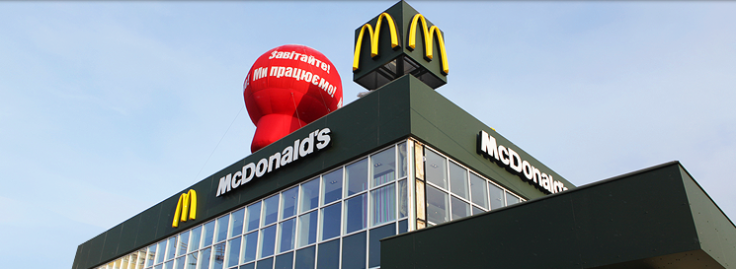McDonald's (And Methadone) To Pull Out Of Crimea

As if the recent political turmoil wasn't upsetting enough, Crimeans are now having a hard time getting their hands on hamburgers and methadone. On Friday, McDonald’s (NYSE:MCD) announced it will shut down operation of its three restaurants in the embattled region of Ukraine due to unspecified “manufacturing reasons,” while Russian authorities in the territory have shut down a methadone-distribution program.
The multinational fast-food hamburger chain made the announcement Friday, specifically avoiding any mention of Crimea’s annexation by Russia from Ukraine last month. The United States and Ukraine refuse to acknowledge the annexation, heightening international tensions over the territory. McDonald’s operates numerous restaurants in both Ukraine and Russia.
McDonald’s claimed in its announcement that the closure of its Crimea restaurants was only temporary, but it did not offer specific reasons for the closures. A statement from McDonald’s European headquarters simply references “operational reasons beyond our control.” It's possible that the contentious situation in Ukraine has resulted in difficulties shipping materials from mainland Ukraine to the Crimean peninsula. Nevertheless, McDonald’s offered to relocate any interested employees to other locations in Ukraine.
"The main priority for us is taking care of our employees, so the company has provided an opportunity to all employees to transfer to any other McDonald's restaurants in Ukraine preserving their positions, salaries and fees and paying to relocate employees and their families to a new residence," it said in a statement.
McDonald's also offered to provide three months of housing to any employees who take the company up on its offer. If employees choose not to move to other Ukrainian cities, McDonald’s added, it will “in accordance with Ukrainian law, offer options to end their employment with a redundancy payment."
Perhaps the most interesting part of the announcement is McDonald’s phrasing regarding Crimea and Ukraine. McDonald’s specifically mentions Ukrainian law and offers to provide housing in “another city in Ukraine,” signaling that at least the Ukrainian wing of McDonald’s still believes Crimea is part of Ukraine, despite Russia’s hasty annexation of the territory last month.
McDonald’s isn’t the only thing being shut down in newly annexed Crimea. According to the Associated Press, some 800 heroin addicts in Crimea who rely on methadone to treat their dependence issues will no longer receive daily doses of the drug, in accordance with Russia's ban of methadone under the premise that much of the supply ends up on the black market.
Many in Crimea are worried that the end of the methadone program could lead to heightened levels of HIV and AIDS in the area if heroin users resume using and sharing needles. HIV rates had steadily risen in Ukraine for years, but in 2012, the nation reported a decline in the infection rate for the first time.
"HIV is an illness that often sweeps up those people who aren't socially secure," Denis Troshin, who runs the Sevastopol methadone therapy program Harbor-Plus, told the AP. "Many of them were put in the (medical) records at some point, but then they disappear for many years and by the time they show up at the hospital again they're nearly dead. Our goal is to find them, convince them to come to the doctor and not miss their treatment."
© Copyright IBTimes 2024. All rights reserved.












